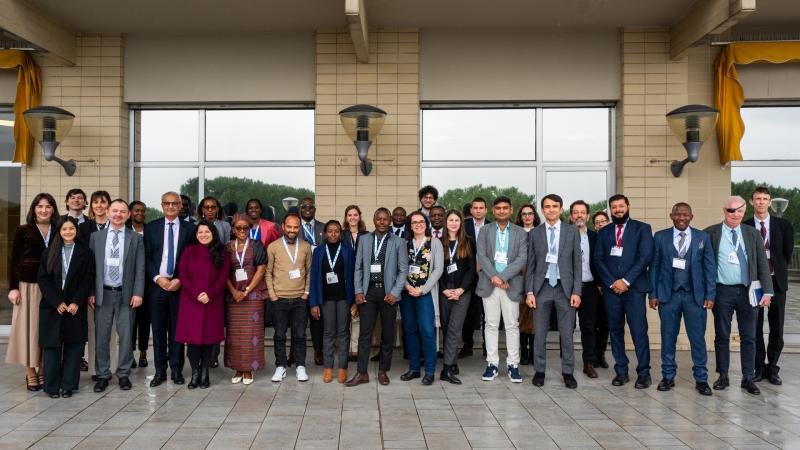Building on the success of the Course on virus detection and biosecurity held in Trieste, Italy in 2023, the partnership of the BWC and the International Centre for Genetic Engineering and Biotechnology, ICGEB has expanded. From 4-8 March 2024, a course will be run as a joint initiative with other international organizations based in Trieste, Italy, The World Academy of Sciences for the advancement of science in developing countries, TWAS and the InterAcademy Partnership, IAP, and will include topics in science diplomacy. The course on "Science Diplomacy, Biosecurity and Virus Detection", will take place in two locations - at TWAS and ICGEB HQ in Trieste.

From more than 850 applicants worldwide, 16 participants have been selected from the global South eligible for official development assistance to engage with international experts, undertake tabletop exercises and hands-on laboratory sessions related to the diagnostics and surveillance of emerging viruses with pandemic potential in the context of biosecurity. The participating countries include Bangladesh, Burkina Faso, Cameroon, Congo, Ethiopia, Iran, Malawi, Mozambique, Namibia, Pakistan, Rwanda, Tanzania, Thailand, Turkiye, Uganda, and Uzbekistan. Dr. Lawrence Banks, ICGEB Director-General commented: "Disease surveillance and threat detection go hand in hand. Building capacity in both can be achieved using similar technologies, providing countries with early warning systems of emerging pathogens and warning the global community of potential pandemic threats."
Human viral diseases represent a global threat, due to the varying levels of preparedness across countries. There is a particular need to strengthen capacity for surveillance and detection of biological threats in low- and medium-income countries. "This course is the first step of a three-tier approach promoted by ICGEB to increase biosecurity globally by reinforcing local capabilities," comments Dr. Alessandro Marcello, course organiser, and head of the Molecular Virology laboratory of the ICGEB. "This approach will include short-term fellowships for training in our laboratories, and local support for laboratories in the participants' countries of origin. This Capacity Building model, developed at the ICGEB, complements the immense efforts of the BWC Implementation Support Unit from the United Nations Office of Disarmament Affairs (UNODA), in the implementation of Article X of the BWC, to raise awareness and build required preparedness and response capacities in resource-limited settings," he concludes.
TWAS President, Quarraisha Abdool Karim added: "Today, more than ever, collaborations and partnerships among scientists across the globe are critical to advancing knowledge, addressing our shared vulnerabilities, and building bridges for a safer, sustainable, and peaceful future - and to ensure a legacy for generations to come. Science diplomacy and solidarity are key to this endeavour."
IAP co-president, Prof. Masresha Fetene commented: "It is critically important that young scientists from low or middle-income countries are trained on these broad biosecurity issues, so they can understand the big picture of where their research can take them." He continues: "In this case, IAP is involved as we have a track record in promoting responsible research practices, such as our 'Doing Global Science' book for teachers and students."
The Course, comprising the scientific research excellence, training, and biotechnology transfer actions of the ICGEB, and the expertise of TWAS and IAP in science diplomacy, fully aligns with the international priorities of the BWC to increase awareness in biosafety and biosecurity, particularly in countries with low resource settings. The course is financially supported by contributions from the Norwegian Ministry of Foreign Affairs and the Government of Finland.
Press contacts:
ICGEB: Suzanne Kerbavcic, Head of Communications, Outreach and Public Information, ICGEB Trieste, Italy, cell: +39-3405971692, email: press@icgeb.org
TWAS: Giovanni Ortolani, Public Information Officer, TWAS, office. +39 040 2240-324, email: gortolani@twas.org
IAP: Sofia Nitti, Communications Assistant, IAP, office: +39 040 2240-530, email: snitti@twas.org

